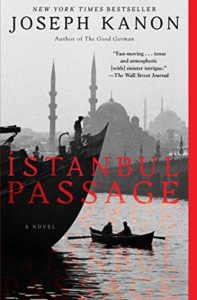
Some books build slowly, and just as you begin to wonder whether you have the energy to finish them, you discover you’re a captive and no longer able to put them aside. Then they build and build, until you find yourself on the last page, out of breath from the frenzied rush to the end. Joseph Kanon‘s novel about post-War Istanbul, Istanbul Passage, is one of those books.
Kanon, born in 1946, writes spy stories about the period immediately following World War II and before the Korean War (1945-50). Istanbul Passage relates the tale of Leon Bauer, an American businessman whose poor eyesight had kept him out of the war. In compensation — seeking his own war, really — Leon has persuaded a friend of his in the U.S. consulate to hire him for special espionage assignments, helping smuggle Jews out of Romania and on to Palestine.
Now, in 1945, Leon receives a different sort of assignment, which involves helping to smuggle a high-value Romanian intelligence target through Istanbul and on to safety in the U.S. But everything quickly goes wrong. Leon finds himself shooting a man to death in a firefight, and the Romanian turns out to be a war criminal at least partly responsible for one of the most notorious massacres of Jews outside the German camps.
Istanbul Passage by Joseph Kanon ★★★★☆
Istanbul Passage is a complex and finely written tale. You can’t read the book without getting to know Leon Bauer — and Istanbul — as deeply as though you had experienced the story yourself. Joseph Kanon is one fine writer!
Kanon ran two major New York publishing houses before he began writing in 1995 when he was nearly 50. His five previous novels — Los Alamos (1997), The Prodigal Spy (1998), The Good German (2001), Alibi (2005), and Stardust (2009) — have won widespread acclaim, and deservedly so, as I’ve noted in my reviews. (To see those reviews, click on the titles of his last two previous books.)
For additional reading
For my reviews of all of this author’s espionage novels, see Joseph Kanon’s spy thrillers are superb.
If you enjoy reading history in fictional form, check out 20 most enlightening historical novels. And if you’re looking for exciting historical novels, check out Top 10 historical mysteries and thrillers reviewed here.
You might also be interested in Top 7 great popular novels reviewed on this site.
If your taste runs to genre fiction, check out my posts:
20 excellent standalone mysteries and thrillers
My post 5 top nonfiction books about World War II may also interest you.
And you can always find my most popular reviews, and the most recent ones, plus a guide to this whole site, on the Home Page.

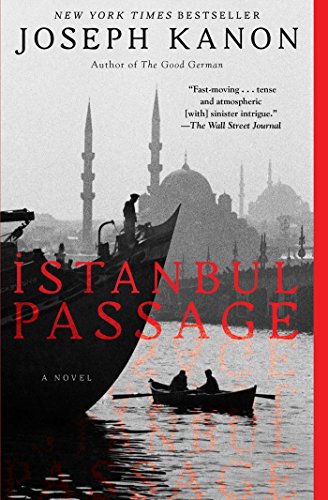
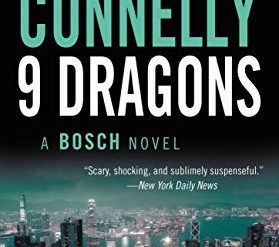

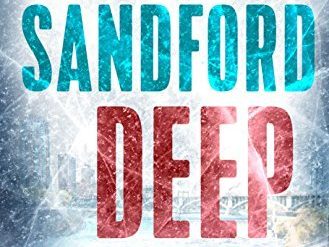
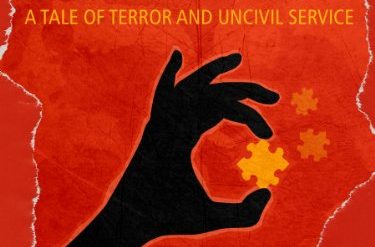






















The term ‘German and Polish camps.’ is not correct. The Nazi Germans established the camps on occupied Polish soil. The camps were not Polish as implied by the comment. Please correct the error.
Jim is quite right. A review of a work of fiction should not itself propose that fiction should masquerade as fact. There were no ‘Polish camps’, since all such camps were set up and run by Germans.
Please don’t be an ignorant!!! Concentration camps was never Polish. In that awful places had died more than 1 m Poles!! Please correct that error !!!
All right, already! You guys are all correct, of course. It was a mistake, and I’ve corrected it. I have no idea where that idea came from, because I certainly know better. I even visited Auschwitz myself many years ago.
Many thanks for making the amendment!
Following President Obama’s recent gaffe — “Polish death camp” — and his ensuing apology to the Polish government, one would expect members of the media to desist using this erroneous terminology. The camps were German, and the first victims were primarily Polish Catholics. Whether by ignorance or design, you muddle the facts about who were the perpetrators and the victims of World War Two atrocities.
Please check my post again. I’ve corrected the error.
BTW, it’s flattering for you to call me a member of the media. I appreciate the compliment.
Thx for the correction, but I am not sure that “media” is a compliment these days.